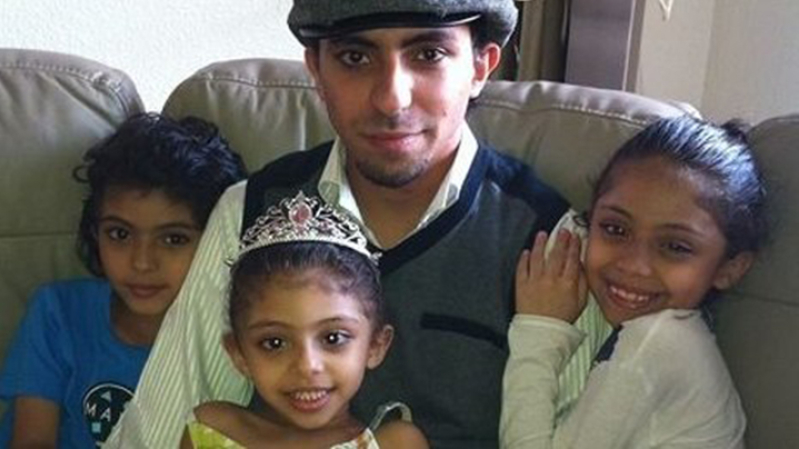
The Saudi Arabian blogger who was originally sentenced to 1,000 lashes with a whip and 10 years in prison for criticizing Islam may now face the death penalty instead.
Raif Badawi,31, made remarks on his blog last May that questioned and criticized the Muslim religion. He was also accused of clicking the "Like" button on an Arab Christian Facebook page. His initial sentence of 1,000 lashes was meant to be carried out as 50 lashes a week for 20 weeks in a public square, but after the first 50 lashes, he has not been flogged again. He currently sits in a Saudi prison awaiting further punishment.
While Badawi has received international support, including pressure on the Saudi government from human rights groups, many experts believe that the Saudi government stopped the public lashings to let the media and the rest of the world forget about the man. But this latest information has put Badawi right back into the spotlight.
According to Badawi's wife, Ensaf Haidar, the criminal court judges who have been over Badawi's case are now demanding a re-trial for the previous charge of apostasy. The charge was originally dropped in 2013 when Badawi proved to the court that he was a Muslim.
When Badawi was first arrested, his wife and children fled the country to live in Canada and organize global support for his release or reduced sentence. Amnesty International is currently moving forward with a campaign that will raise awareness of Badawi's situation even further.
"Tell Saudi authorities that the world is watching - and that we won't stop watching until Raif walks free," the organization says in a recent press release urging citizens to speak out against Badawi's treatment. The group is asking for 50,000 actions to help show support for Badawi.
"With your support: More than 60 Members of Congress have signed on to a letter urging Saudi Arabia's new King to release Raif and other Prisoners of Conscience - as well as make other critical human rights reforms in the Kingdom," the group states. "We've collectively flooded the Saudi embassy in Washington D.C. with more than a thousand phone calls to call attention to Raif's case and others like him," and "Student and activist group leaders have led multiple protests and demonstrations, demanding that the Saudi authorities #FreeRaif."
The group continues on its website to describe the human rights violations involved with public flogging. "Flogging violates the absolute prohibition of torture and other cruel, inhuman or degrading treatment in international law. Act now, and demand that Raif not be subjected to such reprehensible treatment at the hands of the Saudi authorities."
In addition to pressure from world leaders such as Britain's Prince Charles, the U.S. is getting involved as well. "The United States strongly opposes laws, including apostasy laws, that restrict the exercise of these freedoms, and urges all countries to uphold these rights in practice," U.S. State Department spokeswoman Jen Psaki said in January when Badawi was first given the public lashings.
If Badawi is sentenced to the charge of apostasy in the re-trial, he would be sentenced to death.







